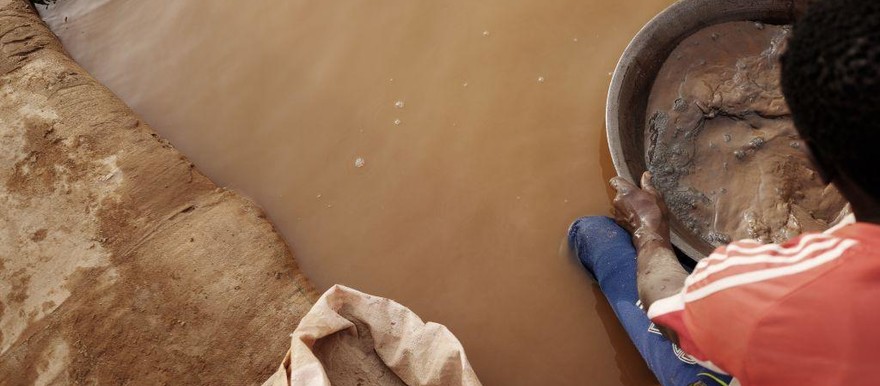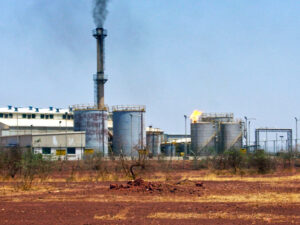Locals reject gold mining companies that use cyanide in South Kordofan

A worker pans for gold in a pool containing mercury in Sudan (File photo: Leyland Cecco)
Resistance committees in Ghadeer, South Kordofan, have renewed their categorical rejection of the return of mining companies to the area and warned Sudan’s security forces against interfering in societal issues.
The resistance committees of Kalogi, in the southern part of Ghadeer, said that a delegation belonging to El Masar Gold Mining Company has begun work in the area of El Tarad, south of Kalogi.
In a statement on Saturday, the resistance committees condemned mining which uses materials harmful to human health and the environment in the region. They expressed their categorical rejection of any mining activities in the area that use cyanide due to its severe harm to human and animal health.
The grassroots activists accused native administration leaders of signing “an illegal agreement with the El Masar Company, failing to consult the local residents.” In particular, local residents must be consulted on the toxic mining waste (called karta in Sudan).
The statement demanded the immediate departure of the El Masar Company. The resistance committees warned that the return of gold mining companies will cause societal and environmental instability in the region.
Sudan issued directives calling for an immediate halt to the use of toxic mercury and cyanide in mining operations across the country on October 9, 2019. South Kordofan has witnessed a series of anti-mining protests, especially in 2019, but protests have also taken place in River Nile state and Northern State against the use of toxic chemicals in mining practices.
Gold extraction through chemical treatment with materials containing cyanide is also causing an environmental disaster in Red Sea state, according to a statement by the local Demanding Bodies Association last month. The Association stressed the “necessity of conducting urgent studies to find out and prevent the causes of fish deaths and to verify a causal relationship with mining activities.”
A recent report on mercury poisoning in Sudan points out that “years of indiscriminate use of dangerous chemicals such as mercury, cyanide, and thiourea without protective measures for miners or local populations has exposed millions of citizens across Sudan to lethal risks”. The report highlights the total negligence of authorities and companies and states that they also failed to educate civilians on necessary precautions to protect themselves.
“The use of cyanide and mercury will definitely lead to an environmental disaster in the country,” El Jeili Hamouda Saleh, Professor of Environmental Law at the Bahri University in Khartoum and legal advisor of the National Committee for Environmental Protection, said in an interview with Radio Dabanga in August 2017.











 and then
and then